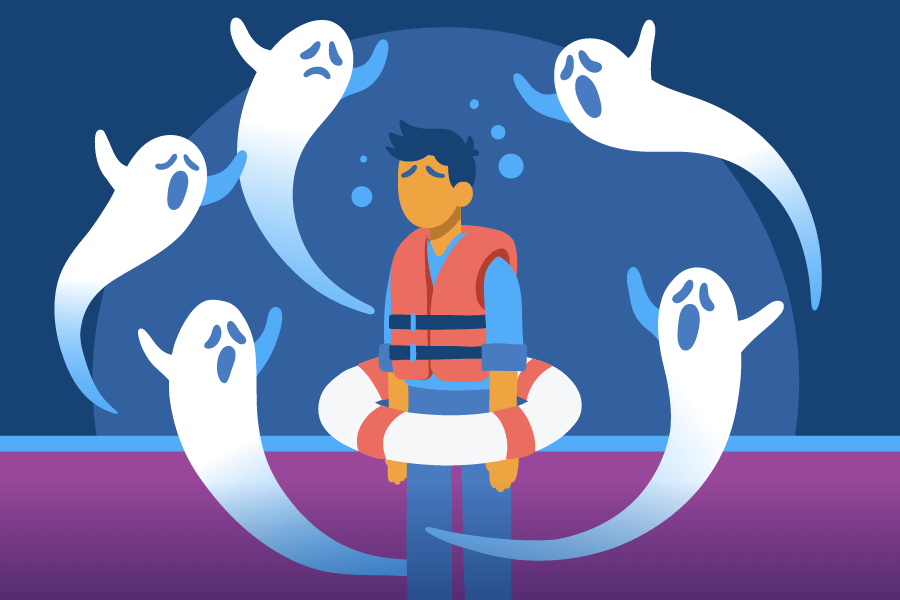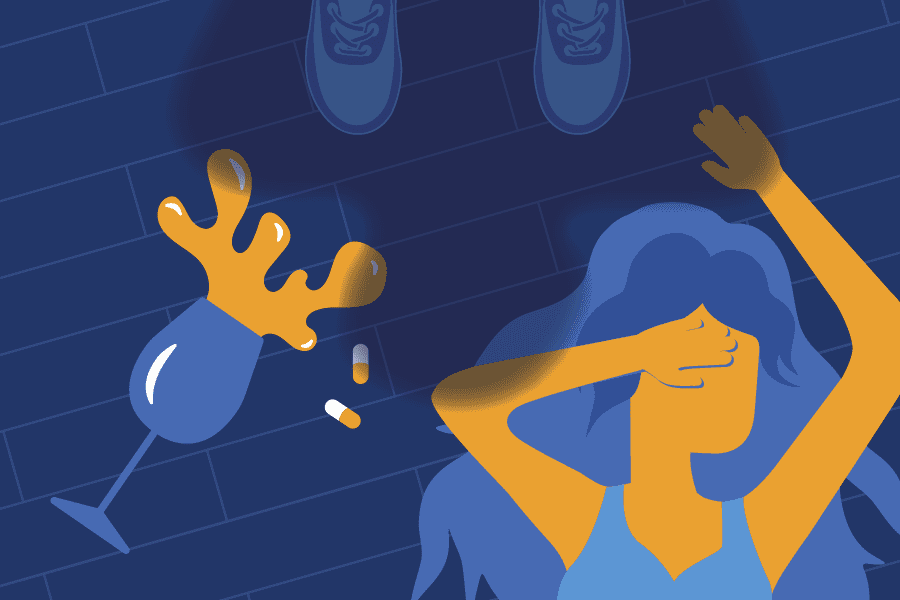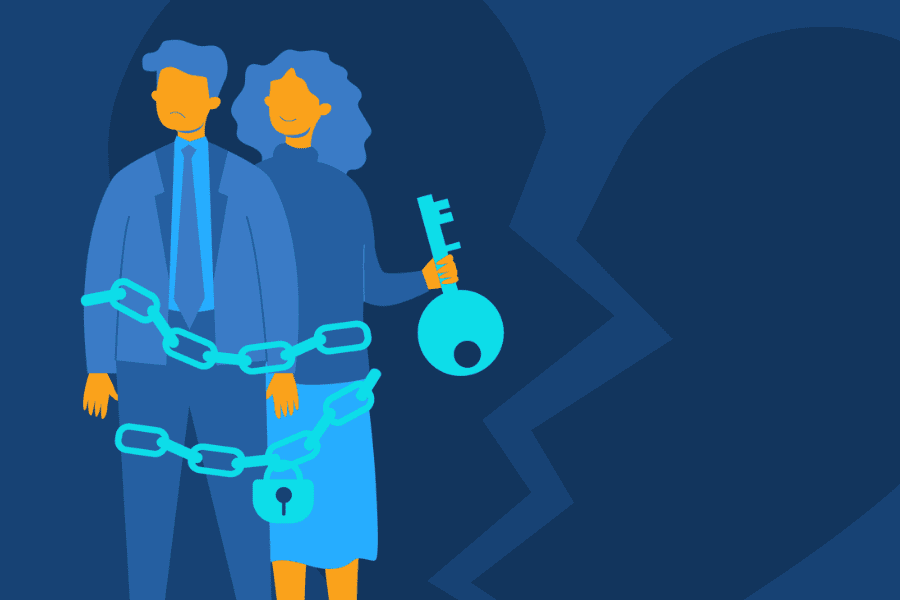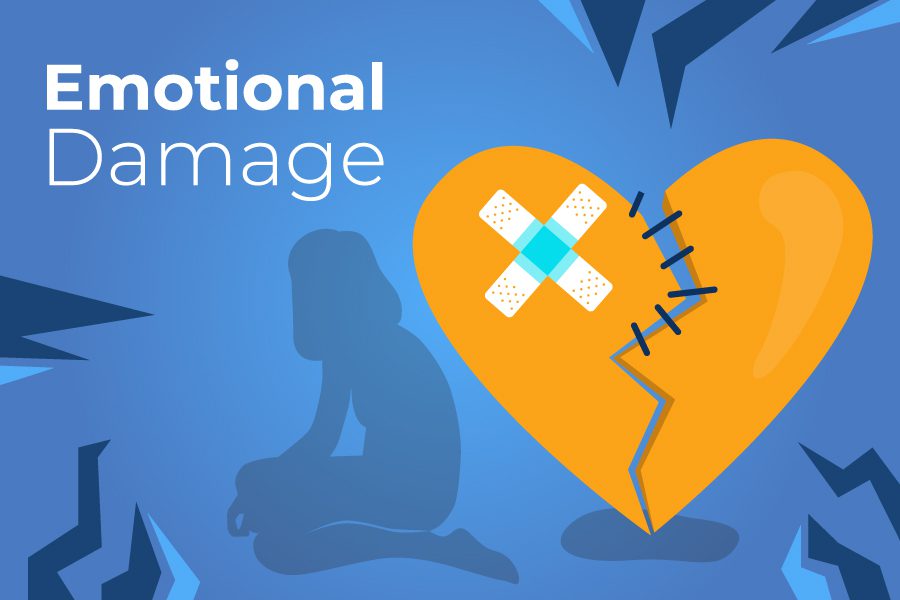Survivor’s Guilt Overview
What Is Survivor’s Guilt?
Survivor’s guilt is a form of intense guilt or shame that occurs when a person experiences a traumatic event in which they survived where others did not.
Survivors often feel that they were “lucky” to get out of a dangerous situation, and many feel that they do not “deserve” their survival as much as the other victims.
Survivor’s guilt usually follows intense traumatic events, especially among those who suffer from post-traumatic stress disorder (PTSD).
While most events that cause survivor’s guilt happen when victims lose their lives, any type of loss can result in survivors guilt.
For example, if someone goes through a natural disaster where they did not lose property or belongings, they may experience a type of “survivor’s guilt” if others in their community lost more than they did.
Why Do People Develop Survivor’s Guilt?
Survivor’s guilt occurs when individuals try to make sense of a traumatic event they survived. Since trauma doesn’t always follow logic, survivors often blame themselves for things beyond their control.
Many people feel powerless about what happened to them and the other victims.
Loss that was largely caused by chaos or chance can shatter a victim’s sense of order or justice in the world around them,
Taking false responsibility for what happened may be the brain’s attempt at reclaiming control over the situation, even though it can be incredibly damaging to the person experiencing survivor’s guilt.
For the majority of those living with survivor’s guilt, these feelings are closely tied to how they think about a traumatic event.
Some believe that they had a hand in how the event played out, or that they could have done something to prevent it from being as tragic as it was.
They may fixate on things they did that they believe caused such a disastrous outcome or through actions they did not take.
It’s important to note that survivors often feel this sense of responsibility even in situations where it was impossible for them to have influenced what happened.
For example, many cancer survivors suffer from survivor’s guilt even though they have no control over the health of others that suffer from terminal illnesses.
Even when victims express that they know that they could not have changed what happened, they may still struggle with constant thoughts about what they could have done differently.
Those who suffer from other mental health challenges, such as anxiety or depression, are often more likely to experience survivor’s guilt after a traumatic experience.
What Are the Common Triggers For Survivor’s Guilt?
Some everyday traumatic experiences that can trigger survivor’s guilt include:
- Natural disasters
- Mass shootings or other forms of violence
- Cancer survivorship or other life-threatening medical diagnoses
- Car accidents
- Military operations and active warzones
Those who work in high-stress and intense professional fields can also be at an increased risk of developing survivor’s guilt.
Military personnel of any branch and role, as well as first responders such as firefighters, EMTs, and law enforcement, can all experience tragedy in their line of work.
This can increase the possibility of developing symptoms of survivor’s guilt.
Mass traumatic events such as wars can leave thousands of people at risk of developing PTSD symptoms. For example, feelings of guilt are known to be very common among survivors of genocide, such as holocaust survivors.
The COVID-19 pandemic is a more recent example of a mass traumatic event that left many with survivors guilt.
Those who did not catch or survived the disease may experience feelings of shame and guilt, especially if they experienced the loss of loved ones.
However, even people who do not see the impacts of a traumatic event in their personal lives can still experience a type of secondhand trauma through platforms such as social media.
Sometimes this secondhand, or vicarious trauma can result in survivors guilt.
For example, American parents who constantly see reports of school shootings on the news may experience survivors guilt that they have not lost their children to gun violence, even if they do not know the victims personally.
Common experiences that can trigger survivor’s guilt after the event include:
- News reports of similar events
- Anniversaries or dates that are related to either the traumatic event or other victims
- Memorials for other victims
- Social comparison or criticism from others about how the event was handled
- Nightmares or flashbacks
What Are the Long-Term Impacts of Survivors Guilt?
Some of the most common ways in which survivor’s guilt can impact a person long-term include:
- Intense feelings of anxiety
- Depression
- Compromised sense of self-worth and low self-esteem
- Self-blame
- Compromised self-care
- Invasive negative thoughts
- Flashbacks
- Panic and doubt
- Thoughts of suicide
- Substance use and addiction
Overcoming survivor’s guilt is incredibly challenging – especially since a person experiencing survivor’s guilt may not believe that they deserve to heal.
Without the proper health care, survivor’s guilt can make it nearly impossible to manage relationships, responsibilities, and PTSD symptoms.
Working with mental health professionals, like those at Sandstone Care, to explore the effects of past traumas can help to identify and challenge the beliefs that fuel feelings of guilt.
How Common Is Survivor’s Guilt?
Survivor’s guilt is incredibly common among those who experience traumatic events, especially tragedies that result in deaths among the victims.
A recent study showed that about 90 percent of those who have lived through a traumatic experience where others did not survive expressed symptoms of survivor’s guilt, making it both incredibly challenging and common.
Those who may be exposed to such traumatic events more than once can be at even greater risk.
Symptoms of Survivor’s Guilt
Identifying the symptoms of survivor’s guilt is the first step towards healing with the right professional treatment.
What Are the Symptoms of Survivor’s Guilt?
Survivor’s guilt can affect each person differently. However, common symptoms of survivor’s guilt include feelings of depression, isolation, shame, and self-blame.
Low self-esteem, belittling thoughts, flashbacks to traumatic events where others did not survive, an increase in suicidal ideology or compromised feelings of self-worth, and substance use are also common among those experiencing survivor’s guilt.
What Does Survivor’s Guilt Do to Your Body?
Survivor’s guilt can impact the body with headaches, feelings of fatigue, exhaustion, insomnia, and even nausea.
The physical effects of survivor’s guilt can also cause a loss of appetite.
Many who experience survivors guilt will turn to addictive substances to self-medicate these emotional challenges, which can be devastating to their physical health.
What Does Survivor’s Guilt Feel Like?
Survivor’s guilt can feel like a unique combination of helplessness, guilt, and even shame from the belief that they are to blame for how traumatic events happened in some way.
This intense combination of grief and regret can appear as intrusive negative thoughts.
Survivors will often move through hundreds and hundreds of hypothetical “should have,” “could have,” and “what if” scenarios, which can increase their feelings of anxiety, stress, and blame.
Survivor’s guilt can feel completely overwhelming. It causes constant negative emotional, mental, and physical strain on the person experiencing it.
Perhaps most harmfully, survivor’s guilt can convince the person suffering that they do not deserve to heal or recover from what they went through.
This often means that survivors go on for years without getting the treatment they need to find peace and move forward with their lives in a healthy way.
How Does Survivor’s Guilt Affect Your Relationships?
Survivor’s guilt can be damaging to relationships because it sometimes causes intense isolation through physical and emotional withdrawal, avoiding social groups, or even lashing out at those they love.
Persistent feelings of anger can also fracture relationships, since survivors may blame others when they are feeling overwhelmed about what they went through.
They may become irritated and shut down when they are asked how they are doing.
Survivor’s guilt can also cause people to turn to unhealthy coping mechanisms that damage communication, trust, and other essential parts of close relationships.
For example, those who try to self-medicate with drugs or alcohol may begin to damage their personal relationships as addictions worsen over time.
Left unaddressed, feelings of guilt and other mental health needs can profoundly affect even the most important relationships, such as with parents, spouses, or children.
Loved ones may pull away if the survivor starts treating them poorly, which furthers the cycle of self-hatred, isolation, and guilt that the survivor is experiencing.
Do I Have Survivor’s Guilt?
You may have survivor’s guilt if you are experiencing guilt, self-blame, or any signs of post-traumatic stress disorder that make you feel that you did not deserve to survive a traumatic experience.
Other signs of survivor’s guilt include angry outbursts at yourself or others, constantly apologizing to other victims or their families, flashbacks to the event, or constantly replaying what you feel you should have done differently surrounding the event.
If you have noticed any of these symptoms in yourself or in a loved one, it is important to seek professional help to determine whether or not survivor’s guilt is damaging your ability to live a healthy life.
Examples of Survivor’s Guilt
What Are the Types of Survivor’s Guilt?
Survivor’s guilt can come in multiple forms, such as generalized guilt about survival to specific thoughts about life-threatening events.
Any instance where an individual feels guilty for surviving when another did not can constitute survivor’s guilt.
For some, this survivor’s guilt can be very general and doesn’t necessarily have to directly involve another specific person, such as following a natural disaster that devastated a nearby community.
However, others can be very specific, tied to losing specific people. An individual may also feel guilt surrounding actions leading up to the life-threatening event.
This kind of event-based survivor’s guilt is typically tied to a specific traumatic experience.
It usually involves feeling guilty about actions that the survivor did or didn’t take that they feel may have prevented the tragedy from happening.
For many, it makes little difference whether or not those are logical thoughts, they will feel guilty even if it was impossible for them to have changed the course of events.
What Is an Example of Survivor’s Guilt?
Some examples of survivor’s guilt include:
- Being healthy when losing a loved one or family member to illness
- Surviving an active warzone or armed shooting when others did not, even if still sustaining injuries oneself
- Being in and surviving a car accident when another did not, even if an individual was not at fault for the accident
- EMTs responding to a natural disaster where someone lost their life
Are There Degrees of Survivor’s Guilt?
Yes, each individual will experience survivor’s guilt differently, and some people may experience more symptoms than others.
Factors like the context of the trauma, how connected the person was to the event, how long or how many times the trauma occurred, can all affect how severe symptoms of survivor’s guilt are.
Some people may only feel guilty for a short time before they are able to make peace with the event and how it affected them compared to others.
Other survivors may experience severe symptoms for years before being able to recover in a healthy way from a life-threatening situation.
One of the main signs that can indicate how severe the degree survivor’s guilt is, is whether or not the survivor feels that they deserve to heal from the event.
Self-punishment can be one of the longest lasting and most damaging symptoms of post-traumatic stress disorder and survivor’s guilt.
Can You Have Survivor’s Guilt If No One Died?
Yes, you can absolutely experience survivor’s guilt when you go through a traumatic event that did not result in anyone dying.
Any type of loss that others experience can leave people feeling like they are undeserving of their “luck” or good circumstances, even if there was no loss of life.
This can include losing property, belongings, or even financial security.
For example, “surviving” a round of layoffs without losing their job can leave some people feeling intense feelings of guilt as they watch their coworkers struggle to recover from being fired.
This is sometimes called workplace survivor syndrome.
Can Children Experience Survivor’s Guilt?
Yes, children can experience survivor’s guilt. These feelings of self-blame can profoundly impact a child’s development and lead to symptoms that may last well into adulthood.
Children are more aware of loss and trauma than many realize.
Many adults believe that serious events “go over the heads” of young children, or that they can shelter them from the effects of a traumatic experience.
However, research has shown that children can absolutely experience the damaging effects of tragic loss even before they have the language to be able to express themselves.
Feelings like grief, guilt, and self-blame are difficult for even adults to articulate, but children experience these emotions at a young age.
Struggling with survivor’s guilt and PTSD? Sandstone Care offers compassionate, expert treatment to help you heal. Call us today or verify your insurance and start your recovery journey.
Survivor’s Guilt and Suicide
Survivor’s guilt and suicidal ideation can be closely related, making professional help for addressing survivor’s guilt important for preventing further tragedy.
Can Survivor’s Guilt Lead to Suicide?
Yes. Feelings of self-blame, guilt, depression, anxiety, and shame can increase the risk that a survivor will experience suicidal thoughts or actions.
Many survivors feel that there is “no way out” from the constant feeling that they did not deserve to survive the event.
It is also very common for survivors to feel like nobody understands what they are going through. Without anyone to talk to, many of the symptoms of survivors guilt can feel unbearable.
Unhealthy coping mechanisms, like turning to drugs or alcohol in order to handle feelings of guilt, can make the risk of suicide even higher among those who have survived traumatic experiences.
Can You Have Survivor’s Guilt of Suicide?
Yes. Surviving suicide, whether it was an attempt to take one’s own life or the loss of a loved one can bring intense feelings of guilt.
When someone survives their own suicide attempt, they can feel like they did not deserve to continue living when others who attempt suicide did not.
This “second chance” can feel like a heavy burden that is extremely difficult to communicate to others.
When someone loses a loved one or a peer to suicide, they may struggle with constant feelings that they could have done something to prevent the suicide from happening.
They may say or think things like, “It should have been me,” or try to bargain with a higher power to “take them instead.”
Suicidal ideation, whether passive or active, can be incredibly dangerous.
If you or a loved one have any thoughts of suicide, please reach out to the national suicide hotline immediately. You are not alone and there are people waiting to listen.
How to Deal With Survivor’s Guilt
Coping with the effects of survivor’s guilt is incredibly difficult. Professional help is often needed to challenge the effects of trauma, post-traumatic stress, and symptoms of PTSD.
How Do You Overcome Survivor’s Guilt?
Overcoming survivor’s guilt usually involves a combination of professional treatment, support groups, self-care, and time.
However, there is no single journey overcoming these experiences that will work for everyone.
Some people will continue to fight symptoms of survivor’s guilt for a long time, even if they experienced a “lesser” tragedy. Others only require a few months of careful treatment to reframe how they view what they went through.
Since each survivor’s relationship with their trauma and with themselves is unique, it is crucial that any therapy or treatment is personalized to address their specific needs.
How Do I Help a Loved One Manage Their Survivor’s Guilt?
There is no “quick fix” to survivor’s guilt, but loved ones can help survivors by:
- Being patient and providing loved ones with time to process and heal
- Validating their feelings by accepting how they feel rather than telling them they shouldn’t feel that way
- Avoiding judgments about how they are processing the event
- Exploring new activities to help them find meaning, such as volunteer opportunities or community outreach programs
- Educating themselves about trauma, survivor’s guilt, and the symptoms of trauma, anxiety, depression, and more
- Maintaining open communication and reassuring the survivor that they are not alone
Treatment for Survivor’s Guilt
Professional treatment for survivor’s guilt helps process trauma, address symptoms, challenge harmful coping strategies like substance use, and replace negative thoughts with positive practices.
Can Therapy Help With Coping With Survivor’s Guilt?
Yes. Therapy can help survivors cope with guilt by giving them a supportive environment where they can reframe their view of the traumatic event and their role in it.
Cognitive-behavioral therapy (CBT), talk therapy, and experiential therapy help teach survivors how to separate their feelings of guilt from their real-life responsibility for the event.
This can be done through reframing thoughts and somatic coping techniques.
Support groups and group therapy can help survivors to feel less alone and learn from others the best ways to move on with their lives.
What Are Effective Therapy Options for Dealing With Survivor’s Guilt?
Some of the more effective therapies for navigating survivor’s guilt include:
- Cognitive-behavioral therapy (CBT)
- Eye movement desensitization and reprocessing (EMDR)
- Experiential therapies like wilderness therapy
- Yoga and mindfulness practices
There is no one track to healing from survivor’s guilt. Many will use a combination of therapies, self-care, and community support.
How Do You Cure Survivor’s Guilt?
Survivor’s guilt is not something that is “cured,” but it can be managed through:
- Learning grounding techniques
- Practicing self-care
- Continuing therapy
- Learning to identify and avoid triggers







